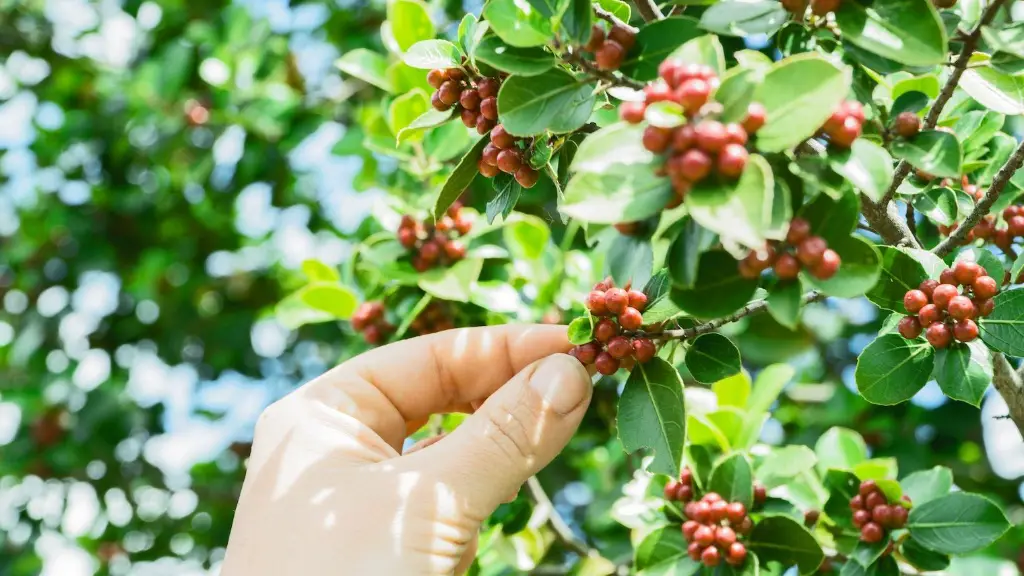Biological Impacts of Drinking Coffee
Coffee is one of the most widely-consumed beverages around the world, and its popularity continues to grow as people become more and more aware of its numerous potential health benefits. But is it really beneficial to consume coffee before or after a workout? To fully understand the answer, it’s important to consider the various biological impacts of drinking coffee.
Caffeine, the primary natural stimulant found in coffee, is known to stimulate the production of adrenaline, which helps the body better utilize its available energy and increase metabolic rate. This makes it ideal for those who want to get more out of their workout. It has also been linked to improved concentration, focus, and even motivation. Additionally, caffeine is known to be a vasodilator, meaning it relaxes the smooth muscles in the body that line the walls of arteries and veins. As a result, drinking coffee may help expand your blood vessels and ultimately increase your oxygen delivery.
Pros and Cons of Drinking Coffee
Despite the many potential benefits of drinking coffee, there are also some potential downsides to consider. Firstly, it should be noted that drinking excessive amounts of coffee can increase your heart rate and blood pressure, which can be dangerous depending on your existing health condition. Additionally, caffeine is a diuretic, meaning it causes your body to expel more fluids than it takes in. This can lead to dehydration if not properly managed, and it’s important to stay hydrated while working out. Finally, drinking coffee may cause uncomfortable jitteriness or feelings of energy crash, which could affect your workout performance.
When to Drink Coffee
Given the pros and cons of drinking coffee before and after a workout, it’s important to know when the best time to drink coffee is. Generally speaking, it’s best to drink coffee about 20 minutes to an hour before starting a workout. This will give it enough time to take effect without causing uncomfortable side effects during your workout. It’s also important to remember that coffee should be combined with proper nutrition and hydration in order to get the maximum benefits from your workout.
Alternatives to Coffee for Workouts
While there are a number of potential benefits and drawbacks of drinking coffee before or after a workout, there are also some alternatives if you don’t want to use coffee to give your workout an extra boost. Green tea, yerba mate, and chicory root are all popular alternatives to coffee that are known to have similar stimulant and vasodilator effects, but without the potentially negative side effects of caffeine. Additionally, certain supplements and foods such as beets, mushrooms, and pre-workout powders are also known to improve energy and metabolism, providing a great alternative to coffee.
Final Considerations
Before making any decisions on whether or not to drink coffee before or after a workout, it’s important to consider your individual health and fitness goals. Some people may find that coffee helps them achieve their goals, while others may prefer to stick with alternatives such as green tea or supplements. Additionally, it’s important to stay adequately hydrated and make sure your diet is balanced and healthy in order to maximize the benefits of your workout.
Economical Impact of Drinking Coffee
The steady rise in popularity of coffee globally has had a significant impact on the global economy. In the United States alone, coffee consumption has risen from more than 100,000 bags (one bag is equal to 60kg) in 2017 to more than 130,000 bags in 2018. This is an increase of more than 30%. Worldwide, people spend more than $100 billion on coffee every year, a number that continues to increase as people become more aware of the potential health benefits of drinking coffee. Additionally, the rise in coffee consumption has led to the emergence of specialty coffee co-ops, cafes, and independent coffee shops, creating jobs and stimulating economic growth in many communities.
Social Impact of Drinking Coffee
The rise in coffee consumption has also had a significant social impact on society as well. In the United States alone, coffee consumption has increased by more than 20% between 2017 and 2018, and this rise in popularity has sparked the emergence of coffee-related social movements and organizations. These include movements such as “Coffee with a Purpose,” which seek to bring together coffee drinkers from different backgrounds to discuss and create solutions to some of today’s most pressing social and environmental issues. Additionally, there are numerous coffee-related charities and organizations, such as Grounds for Health, Coffee Kids, and Coffee for Peace, which use coffee as a tool for social and environmental progress.
Health Benefits of Drinking Coffee
Overall, the rise in coffee consumption has had a number of positive impacts on society. In terms of health benefits, coffee is known to have a number of positive impacts on the body, such as reducing the risk of certain diseases, improving concentration and memory, and reducing the risk of Alzheimer’s and dementia. Additionally, studies have shown that drinking coffee may be beneficial for those who are looking to lose weight, as it has been shown to increase metabolism and burn more calories.
Environmental Impact of Drinking Coffee
The environmental consequences of drinking coffee are not to be overlooked either. In recent years, the coffee industry has made a conscious effort to reduce its impact on the environment by transitioning to more sustainable farming and processing methods, such as composting and recycling. Additionally, some companies have begun to use recycled or eco-friendly packaging, as well as biodegradable coffee bags, to help reduce their impact on the planet.
Conclusion
Overall, the rise in coffee consumption has had a significant impact on society, both socially, economically, and environmentally. Whether or not to drink coffee before or after a workout should ultimately come down to personal preference, although it is important to remember to drink responsibly and pay attention to any potential negative side effects. Additionally, it is important to consider the numerous potential benefits as well as the environmental and social impacts of consuming coffee.


